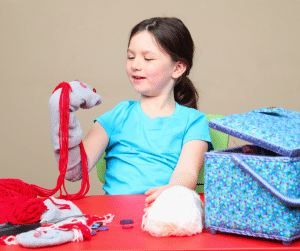Many children snore, so it must be normal… right?
Absolutely not! Snoring is 100% BAD NEWS for our little tackers. It’s bad news for adults too… read more about that here.
What is snoring?
Snoring is one of the most common symptoms associated with Obstructive Sleep Apnea (OSA) and is caused by vibration of soft tissues obstructing the pharynx (back of the throat) during sleep. Snoring can be caused by many factors and is exacerbated when a child is obese, by extra tissue growth restricting the size of the airway. Sleep Disordered Breathing (SDB) is a term used to encompass snoring, mouth breathing and OSA.
Why is snoring so bad?
When you have a head cold, you often feel like you’ve been hit by a truck when you wake up in the morning. This is because you’ve been mouth breathing, aka SDB! Children who mouth breathe live with a perpetual “head cold”. This reduces their ability to concentrate and function properly. Basically, SNORING SUCKS.
1. Snoring/SDB is a disorder of oral-facial growth.
Studies by Huang & Guilleminault, 2013 found that SDB in non-obese children is a disorder of oral-facial growth. This means that the growth of your child’s face can be disordered if they have SDB. GASP!
Examples of disordered oral-facial growth can of course be googled, for most dramatic effect. Disordered oral-facial growth can also be described by the following features;
– long, narrow face
– asymmetrical face
– crooked teeth
– overbite or underbite
– low muscle tone in face
– dark rings under eyes
At the very least, the above can result in huge orthodontic bills.
2. Sleep Disordered Breathing can cause hyperactivity and behavioral problems.
The American Academy of Pediatrics (2012) found that the presence of SDB in infants predicted a 40%-50% increase in behavioral problems at 4 and 7 years old. The same longitudinal study drew connections between SDB and hyperactivity, emotional difficulties and peer difficulties. Read more here.
It makes sense. If your child isn’t getting a good sleep, how can they be expected to function, interact and emotionally regulate properly?
3. SDB can effect speech and swallowing development.
Huang & Guilleminault, 2013 also found that oral-facial myofunctional dysfunction (OMD) is associated with the recurrence of OSA. This means that OSA is related to abnormal lip, jaw, or tongue position during rest, swallowing or speech. Generally, these kids present to a Speech Pathologist with a tongue thrust swallow and/or a “lisp”. Disordered swallowing patterns can cause difficulty transitioning to solids and fussy eating habits in older children.
4. SDB is related to recurring illness in children.
Breathing through your mouth requires your tonsils to filter the air. Your tonsils are only “backup” filters, with your nose being the primary filter. These lazy tonsils don’t like doing the job all the time. As a result, they hoard all of the bacteria and VOILA! …Tonsillitis! Kids and adults who have recurring tonsillitis should rule out possible mouth breathing habits. Kids can also fall behind developmentally if they are sick all of the time.
Why do children snore?
1. Unable to breathe through their nose due to;
– Allergies (blocked nose)
– Structural abnormalities (broken nose, deviated septum)
2. Habit:
Mouth breathing can be habitual, caused by thumb or finger sucking, or even asthma.
3. Tongue tie:
Structural and/or physiological factors such as a restructed lingual frenum or “tongue tie” can cause the tongue to rest low in the mouth, making it difficult to close the lips. If you try breathing through your nose with your lips open and your tongue sitting over your bottom teeth, its almost impossible not to mouth breathe!
As mentioned earlier, obesity can have a huge structural impact (restriction) on the airway, causing snoring/SDB.
How can we fix snoring!?
There are many options and avenues to explore when presented with a snoring child. **It is important to remember that no two children are the same, and to contact a professional before making any decisions regarding your child’s snoring. Don’t self-diagnose.
1. Allergy testing
Yep, if your child is allergic to something, its probably blocking their nose, which can lead to mouth breathing! Try and sort out any allergies first, before taking further action. I’m no expert here, but I do know that dairy products are common allergens for blocked noses!
2. Go to an ENT (Ear Nose & Throat Specialist)
An ENT can check that your child can actually breathe through their nose! Children with structural issues such as a deviated septum or broken nose may need surgery to allow nose breathing to occur. Children with recurring tonsillitis may need to have them removed.
3. Orofacial Myofunctional Therapy (OMT)
Whoa, isn’t that a mouthful!
OMT is non-invasive therapy. It encompasses exercises and habitual changes to improve the breathing, chewing and swallowing functions, as well as improve resting tongue posture. Camacho et al, 2015 discovered that OMT decreases the apnea index by approximately 62% in children and 50% in adults. Their systematic review concluded that OMT can serve as an adjunct to other obstructive sleep apnea treatments.
4. Pediatric Dentist/ENT
When appropriate, children may need to visit a paediatric dentist or ENT who is trained in releasing tongue ties. This procedure is called a frenectomy, and can be explained well in this article by Dr Ghaheri.
It is important for children to complete pre and post frenectomy OMT to reduce the risk of reattachment. It’s basically like going to the physio after a knee reconstruction, if you don’t do your rehab exercises, the surgery could relapse!
At SPOT Rural, our speech pathologists are trained in OMT. You can contact us if you are concerned about your child’s snoring.







